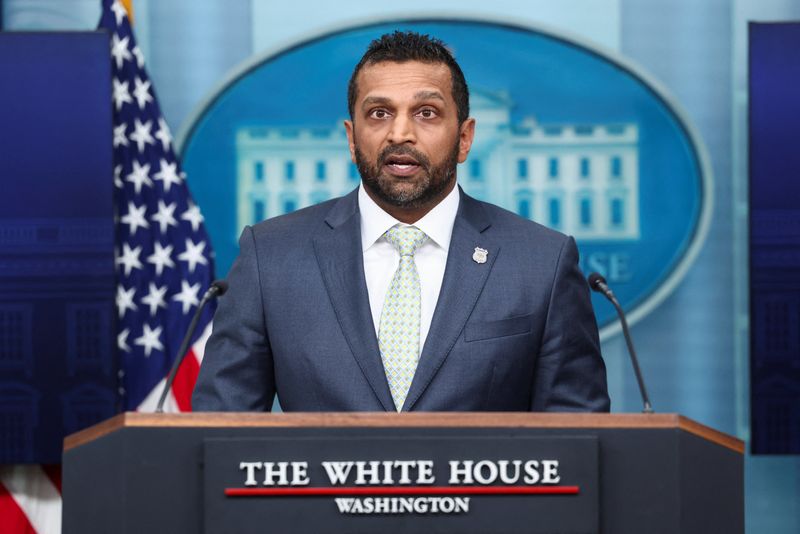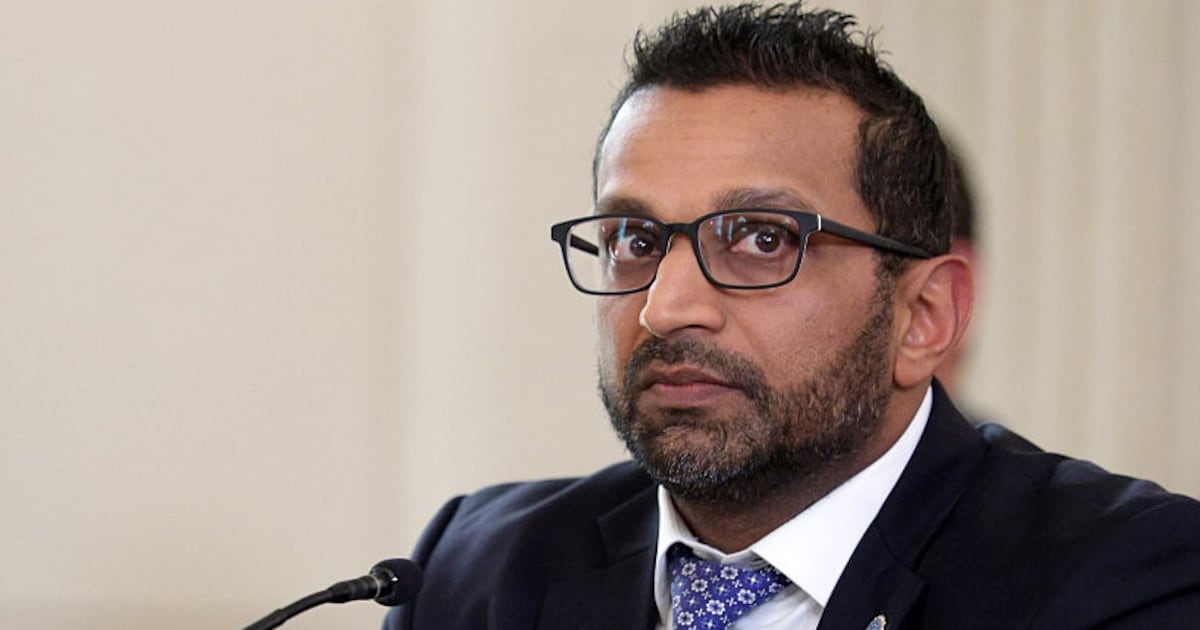The Anatomy of a Political Fall
The reports from MS NOW detailing President Donald Trump’s consideration of ousting FBI Director Kash Patel are not, in the grand scheme of things, surprising. They are merely the final, predictable tremors of a political structure built on a fault line of personal loyalty and fleeting utility. To view this situation through the narrow lens of a misused government jet or an overzealous security detail is to miss the entire game being played on a much larger, more brutal chessboard. This isn’t about perks. It is about power, perception, and the cold, hard expiration date that comes stamped on every political appointee in such a volatile administration.
And so the narrative begins. A loyalist, Kash Patel, is elevated to one of the most powerful and historically independent positions in the United States government. He is seen as an instrument, a tool to enact the will of the executive. But the tool itself becomes a problem. Because instruments of power, once they begin to generate their own headlines and draw their own negative energy, cease to be useful. They become liabilities. The very headlines—“Keystone Kash Facing Axe,” “Misuse of Government Jet”—transform him from a trusted lieutenant into a media sideshow, a distraction from the primary agenda. And in the economy of political capital, distractions are an unaffordable luxury. He became dead weight.
A Pattern of Disposable Allies
History provides a clear and unforgiving context for this moment. The Trump administration, more than any other in recent memory, has operated on a model of rapid ascent followed by an even more rapid, and often public, descent. Figures are brought into the inner circle, lauded for their loyalty and aggression, and then unceremoniously discarded the moment their political cost outweighs their benefit. We have seen this play out time and time again. Because the central principle is not institutional stability or long-term strategy; it is the daily, hourly maintenance of the principal’s political strength and public image. Patel’s alleged actions provided the perfect pretext, a convenient and easily digestible reason for the public to explain a much more complex internal realignment of power. It’s never about the stated reason.
But the position of FBI Director carries with it a unique historical weight. It is not just another cabinet secretary. The Bureau has, since its inception under J. Edgar Hoover, maintained a complicated and often adversarial relationship with the White House. Hoover himself wielded the FBI as a personal fiefdom, a tool for blackmail and political intimidation that made him untouchable for decades. After his death, reforms were put in place specifically to prevent the FBI from ever again becoming the political weapon of a sitting president, most notably the 10-year term limit for its director. The appointment of a perceived loyalist like Patel was seen by many as a direct challenge to that post-Watergate consensus. His potential removal, therefore, is layered with irony. He was likely put in place to ensure loyalty, but is being removed because the *appearance* of his loyalty, manifested as entitled excess, has become a political problem. The optics soured.
The Strategic Calculation Behind the Axe
Let us dissect the strategic imperatives at play. Why now? And what does it signal? Removing an FBI Director is never a casual decision. It invites scrutiny and fuels narratives of chaos and instability. Therefore, the decision to leak this consideration to MS NOW is itself a calculated move. It is a trial balloon. The White House is gauging the reaction from the party, from the media, and from the public. Will his ouster be seen as Trump cleaning house of a corrupt official, or as yet another sign of a chaotic administration unable to retain top talent? By framing the potential firing around a scandal of misused perks, the administration is attempting to control the narrative from the outset. It’s a classic public relations maneuver: define your opponent’s problem before they can define it themselves. Patel is being defined as a man of excess, not as a man being purged for political reasons.
Furthermore, the source of the pressure is a key question. Is this decision coming solely from Trump, who is notoriously sensitive to negative media coverage of his subordinates? Or are other power centers within the administration or the broader party applying pressure? Perhaps established figures see Patel as an amateur whose gaudy displays of power reflect poorly on the entire operation. An insistence on a SWAT team for personal protection, if true, reeks of insecurity and a misunderstanding of the subtle nature of institutional power. It’s loud. It’s clumsy. Real power doesn’t need to announce itself with sirens and tactical gear. The true sharks in Washington swim silently. Patel, it seems, was thrashing in the water, attracting too much attention. And that is always a fatal mistake.
Implications for the FBI and What Comes Next
The consequences for the Federal Bureau of Investigation are significant. The agency has already endured years of political attacks that have damaged its credibility in the eyes of a large portion of the American public. A rapid turnover at the top, especially the removal of a director for what will be spun as ethical lapses, only deepens the sense of politicization and instability. The rank-and-file agents of the FBI, who pride themselves on professionalism and being above the political fray, will inevitably be demoralized. It creates a vacuum. It fosters uncertainty. Who will be next? Will the next director be a seasoned law enforcement professional dedicated to the Bureau’s independence, or another political loyalist who understands the precarious nature of their position and will therefore be even more hesitant to take any action that could be perceived as disloyal? The very act of considering Patel’s removal sends a chilling message to any potential successor: your primary job is not law enforcement, it is the political maintenance of the President.
Predicting the next move is an exercise in understanding the core tenets of Trump’s operational code. The replacement will not be a figure from the establishment. It will not be a James Comey type, who sees himself as a guardian of institutional norms. Instead, Trump will likely seek a candidate who is perceived as unassailably loyal but who also has a cleaner public image, someone who can wield the power of the office effectively without becoming a media caricature. The lesson learned from the Patel episode is not that loyalty is wrong, but that *obvious*, clumsy loyalty is a liability. The next director will be someone who understands that the real work is done in the shadows, not from the window of a government jet. This entire affair is a teachable moment for the administration, a brutal but effective lesson in the management of political assets. Patel failed the test. He became a story. And when you become the story, your role in the larger narrative is over.


